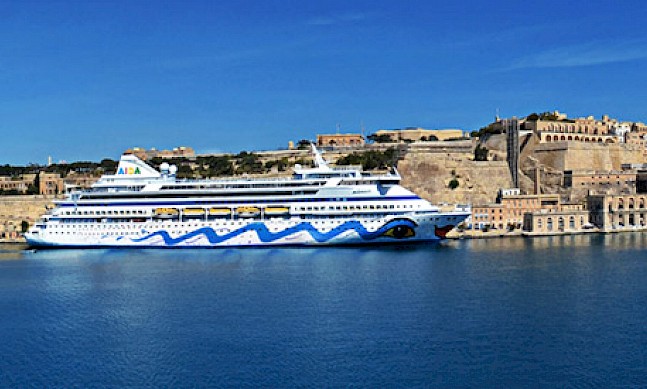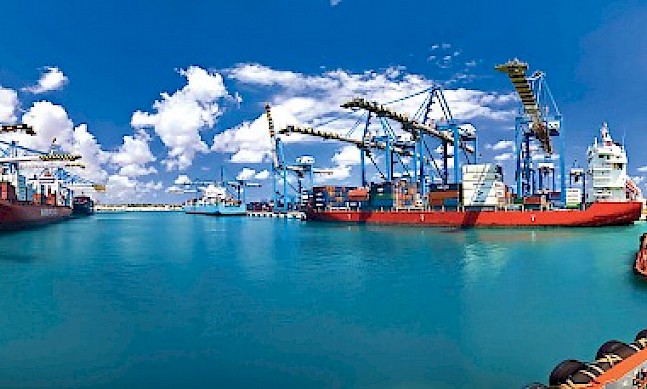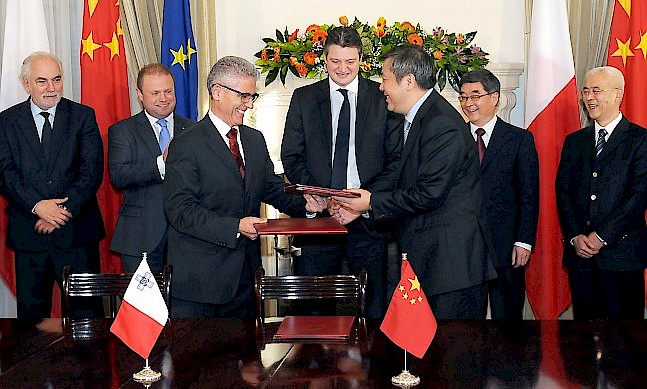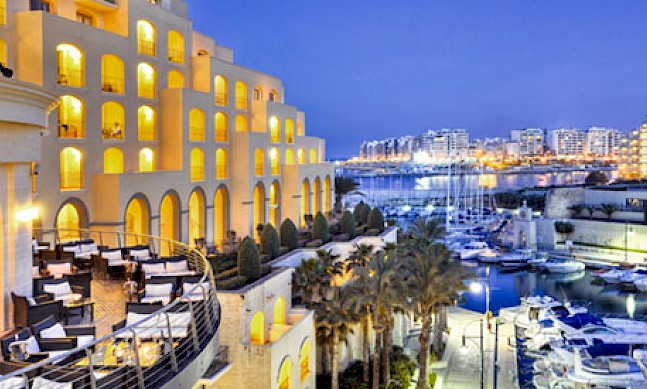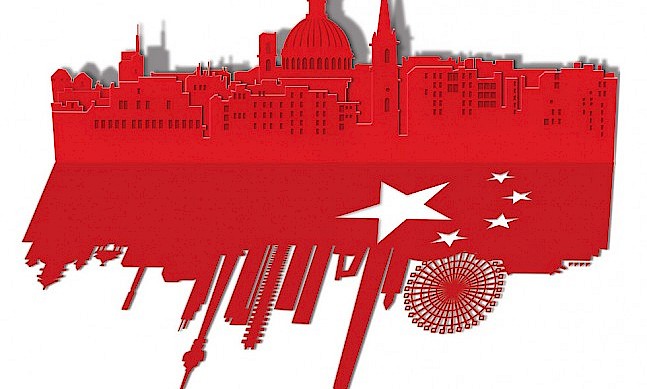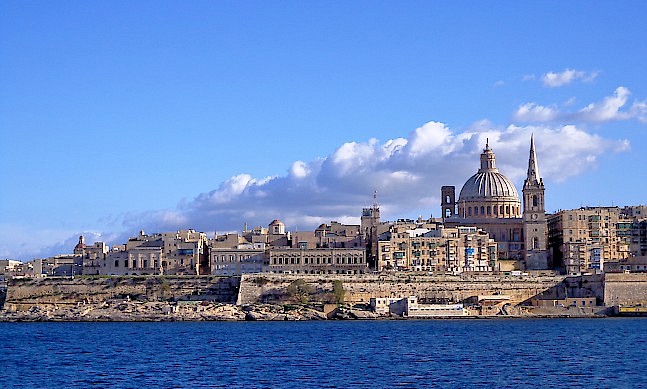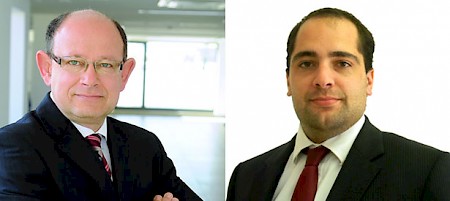
KPMG is one of Malta’s leading firms of certified public accountants, tax and business advisors, and can trace its origins back to 1969. Andre Zarb, who has been with the firm since 1986, took responsibility for the tax function in Malta in 1993, followed by making partner in 1994, leading to significant developments within the tax function. Simon Xuereb, a senior manager in the tax function, joined the firm in 2009, and on a daily basis furnishes advice leading to the implementation of international tax solutions for a broad range of international clients across various industries. They met with The Report Company to talk about what Malta means to KPMG and where the opportunities lie for foreign investors.
The Report Company: How does Malta fit within the strategy of KPMG?
Andre Zarb: KPMG in Malta traces its roots all the way back to 1969. It was previously a local firm. That is how all the international firms in Malta started out.
Simon Xuereb: In the 1990s as the country moved towards becoming an international financial services centre, a process in which KPMG had a leading role, the importance of those international links was recognised by the local firms and the importance of having a representative office or member firm in Malta which was positioning itself to be a financial services centre was similarly recognised by the international firms.
AZ: This also tied in with a time when the big international firms were also seeking to increase their membership and integrate everyone much more into the brand.
TRC: How would you appraise the current investment climate in Malta?
SX: Malta has a significant role to play both within the EU and externally to the EU and given its geographic location, something which is almost a cliché, but remains an important consideration today, though perhaps for new and different reasons.
Malta is also not just an integral part of Europe. If you look at our strategic position in the centre of the Mediterranean, Europe may have slowed down a bit in the current economic climate, however throughout the upheaval in the North African rim, Malta has increasingly been seen as a safe base for operations in North Africa.
AZ: The economic climate in Malta is good, especially in this sector. There is a constant flow of business, and even though Europe has had an economic downturn we still see business coming from Europe. Some people are trying to move out of those regions because they’re looking for a place where they can be more competitive and Malta’s plus point is not only the tax, but the fact that the cost of doing business is probably 50 percent or less than in Frankfurt, Paris or London.
SX: The downturn in Europe has actually created quite a significant M&A opportunity for outside investors such as the Chinese, who are making large acquisitions of established companies and brands in Europe, primarily driven by the depressed business values that we are experiencing in Europe, so there is still a lot of work going on and Malta is a great place through which to do business. It has cost advantages, tax advantages and has an efficient administrative regime.
Because it’s a small place, it’s very easy to do business and the laws are all very business-friendly. Everything is based on the UK commercial code, which is known to the multinationals. In terms of the business environment in Malta, we’re doing well.
“The economic climate in Malta is good, especially in this sector. There is a constant flow of business, and even though Europe has had an economic downturn we still see business coming from Europe.”Tweet This
AZ: As recently stated by Lord Mandelson, Malta is an oasis of calm, stability and financial power in the European Union. This is at a time when a lot of other European Union member states are in a state of instability, politically or financially. Similarly North Africa is in turmoil while Malta is a close, convenient safe haven, with the added benefit of being a full EU Member State. This is borne out by our low unemployment and the relatively constant inflow of foreign direct investment into Malta.
It should also be noted that Malta’s interests are also not solely limited to financial services, Malta has approximately 200 manufacturing companies with operations in Malta, predominantly subsidiaries of EU or US multinationals who produce goods in Malta mainly for export. There are also a number of pharmaceutical companies who have production or R&D facilities here.
TRC: Which are the most significant economic sectors for KPMG?
AZ: We are present in all the sectors. We have quite a number of manufacturing enterprises. The firm has always been very active in the manufacturing industry ever since I joined in 1986 and since the manufacturing industry started to take off, fed by operations relocating from the UK and Germany in the early 1970s, driven predominantly by cost advantages.
I have advised successive governments on industrial incentives since 1992 and I’ve also helped government with all the EU pre-accession negotiations, aligning the industrial incentives to EU law.
The financial services industry has also been growing since the 1990s. The country had started with an offshore law in 1998 but that came under attack by certain countries because it was offshore, and there was a risk that important countries like Germany would terminate their double taxation agreements with Malta so the government took immediate action to revamp all the laws to what we have today. Financial services is an important sector and one in which we are very strong. By way of example we advise or audit approximately 80 percent of the banks in Malta at the moment.
TRC: Where do you see the opportunities for the Chinese in Malta?
AZ: There is interest from China, especially in the financial services field, for China to use Malta as a platform for their European operations and M&A activity, and we have structures for quite large Chinese companies who use Malta in their international structuring for financing and leasing activities.
I think the future augurs well in the sense that this government is taking a more proactive approach to China and trying to foster and increase the business links between Malta and China. That will inevitably lead to more business.
“It’s very easy to do business and the laws are all very business-friendly. Everything is based on the UK commercial code, which is known to the multinationals.”Tweet This
SX: China is obviously also of great interest to us and we’re looking at the investment being pumped out of China into the EU.
However, it’s not just in financial services; I have met with a number of Chinese manufacturers looking at using Malta as a distribution hub for the North African and European markets. One of the busiest shipping routes in the world passes just off the Maltese coast. Meaning Malta is an ideal location for various value-added activity at a lower cost than in mainland Europe, and the finished goods are then ideally positioned for distribution to the North African, Mediterranean basin and European markets.
TRC: What changes need to be made to make Malta more attractive in terms of the regulatory framework?
AZ: For the non-tax aspects, if you look at the government set-up for tax and corporate services, that is the MFSA and the international tax unit housed within the MFSA for international structures it is fantastic and that’s the major touch point for international business structures.
SX: However, once you start looking at larger operations e.g. manufacturing etc. there is room for improvement in terms of perhaps having something similar to the MFSA or international tax unit, that is one consolidated single point of contact, a one-stop shop where you can go to handle everything. Malta wasn’t ranked brilliantly in the Ease of Doing Business Report and one of the major points raised therein was that you can’t just go to a single government office and handle everything in a single place. I definitely think there is scope for rationalisation of the outlets you have to go to in order to deal with the various formalities. To be fair, there have been some attempts by successive governments to move in this direction, however to date it doesn’t seem to be comprehensive enough.
TRC: What are Malta’s competitive advantages as a destination for foreign direct investment?
AZ: There are a number of other jurisdictions which have similar qualities and competitive advantages to ours. Such as the workforce itself; you find professionals here who are of the same calibre as you would find in London, in Geneva, and in the main financial services markets. I think that Malta is not as popular as it could be simply because of lack of visibility. But when people do come here and they meet the professionals here they quickly realise that they are dealing with people of the same calibre as they would find in London, Dublin or New York.
Another advantage is how the tax system works. Being in the EU means that all the EU directives apply. This means that whether you are in Malta or in London or in Luxembourg, a company still has the same rights. Malta’s major advantage is that our tax system is much more transparent than our major competitors while retaining its competitiveness. It’s therefore much simpler to operate and it will cost much less to operate and comply with.
“Malta is an oasis of calm, stability and financial power in the European Union. This is at a time when a lot of other European Union member states are in a state of instability, politically or financially.”Tweet This
SX: I would also include the fact that historically we’ve been a melting pot, and that has fed into our legal framework. We have trusts and foundations operating side-by-side, which are common law and civil law concepts. People or businesses coming from common law jurisdictions to Malta feel at home with our legal system which contains similar if not identical concepts, with our tax system and with the culture. However a French or Italian person coming to Malta would equally find that our civil law base, our culture helps them feel at ease with the business environment.
People from wherever they are coming from can typically feel quite at ease with the culture and the system in Malta and that’s an advantage that many of our competitors don’t have.
Sorry to harp on about it, but our geographic position really does help. When you’re looking at the whole Mediterranean basin, Malta has historically been a trading post, a bridge between east and west, between north and south and for this reason, the exposure to all the surrounding cultures over hundreds of years has rubbed off and the result? A culture, a linguistic tradition to which the North Africans, Europeans and the Arabs can relate to. Also as an aside, following on from our strong maritime tradition as a trading hub, it is also interesting to note that Malta today has the largest shipping registry in Europe.
AZ: Our business language is the international language of the world, which is English.
TRC: What makes KPMG different from the rest?
AZ: We promote Malta a lot to all the corners of the world. We divide ourselves geographically and product-wise and we keep ourselves up to date on what goes on in both the tax and the business world, from Latin America, the US, Canada to Europe to China to New Zealand to Russia.
SX: At the end of the day, our commitment to quality underpins everything we do. In order to achieve those levels, there is constant investment into our human resources. We grow and develop our people to meet those targets. On the domestic side, KPMG plays a leading role in identifying issues that need to be addressed in the legislation and the Maltese product offering.
AZ: Keeping abreast of developments means that we always seek new ideas on how Malta can improve its offering to keep up and remain attractive in the light of international developments. We proactively share these ideas with the government of the day and discuss with and advise government on their implementation following discussions with relevant stakeholders.


